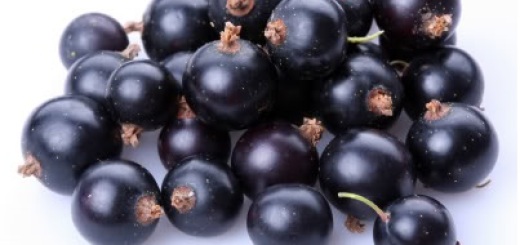Complete Carbohydrates Guide: Sources, Uses and Types
Carbohydrate is one of the essential substances that you need for a healthy body. Most of the people cut down the consumption of carbohydrates when they follow a diet to lose weight. But you must take care that you take the amount that is necessary for the body.
What are Carbohydrates?
There are four major classes of organic compounds in the body and carbohydrates are one among them. It is a rich source of energy and you get about 80% of the energy that you require daily from consuming carbohydrates. Some dietitians advice you take large amounts of carbohydrates while others are of the opinion that you need only a small quantity of it.
Classification of Carbohydrates:
Complex Carbohydrates:
Long chains of sugar molecules constitute the complex carbohydrates. These take more time ot digest and are converted in to sucrose and glucose after digestion. During the process of breakdown, you get energy that is released. Since they take longer time to breakdown, you get continuous supply of energy. Complex carbohydrates are called good carbohydrates and they provide a steady supply of energy, much more than you need in a day. Fresh fruits and vegetables, whole grains, legumes, pastas and oats contain these carbohydrates. You must include complex carbohydrates rather than simple ones in your daily diet as they are healthier.
Simple Carbohydrates:
The molecular structure of these carbohydrates is simple and is usually made up of one or two sugar molecules. They are easy to digest and easily absorbed by the body in the form of glucose. Glucose reaches every part of the body immediately and provides you with instant energy. You have to consume it in moderate levels as it may increase the level of sugar in the blood and also leads to the accumulation of excess fat in the body. These may lead to obesity and other problems.
Chemical Composition of Carbohydrates:
According to its chemical composition, carbohydrates are classified in to four classes:
Disaccharides:
Disaccharides are naturally occurring carbohydrates and are formed by condensation reaction. They are simple and include sucrose, lactose, trehaloes, cellubiose and maltose.
Monosaccharide:
Sugar is a monosaccharide and it contains carbon, hydrogen and oxygen in the ratio of 1:2:1. Glucose, galactose and fructose are some of the common monosccharides found. Glucose is the main sugar and provides instant energy to the body. Galctose has the same structure but one hydroxyl group. Galactose binds with glucose to form lactose in milk. Fructose and glucose have the same chemical formula, but fructose is a ketone while glucose is an aldehyde. Fructose has a three dimensional structure.
Oligosaccharides:
Oligosccharides are formed by the combination of 3 to 10 units of sugar molecules. Glucose, galactose and fructose are repeated in them and they are rich in nutrients. They do not get metabolized by the small intestine. Instead, they are metabolized in large intestine by bacteria. Unwanted gaseous byproducts are formed during this process. Oligosccharides help in storing glucose. There are two types of oligosaccharides, which are raffinose and stachyose.
Polysachharides:
Polysaccharides consist of more than 300 units of sugar molecules and are monomers. They are needed for storing glucose in large amounts. Polysaccharides that are not digestible are called dietary fiber. Pectin, cellulose, gum and hemi cellulose are some of the dietary fibers. Cellulose is the cell wall and it never gets digested in the human body. It forms roughage and is good to prevent constipation.
About 130 – 300 gm of carbohydrates is needed per day for a healthy adult. Those who a lot of physical activity like sports men, laborers, mountaineers as well as lactating mothers need more carbohydrates. Try to take more of complex carbohydrates instead of processed foods like refined sugars and syrups.
Sources of Carbohydrates:
The food we eat contains three types of carbohydrates, which are starch, sugar and dietary fiber.
- Starch is a long and complex chain of simple sugars and it has to be broken down in to simple units before the body can use it. Potato, corn’s cereals, beans and bread are rich in starch. People having sugar related problems must avoid taking too much of starchy food.
- Sugar is very sweet to taste and is a simple carbohydrate which is broken down in to glucose and taken to all parts of the body. Glucose, lactose and sucrose are the most common forms of sugar. Glucose provides instant energy to the body and is often injected in to the blood when you are too weak. Excess glucose gets stored as glycogen in the liver and as fats in the body.
- Dietary fibers are those that do not get digested in the body. It is low in calories and is excellent for proper digestion. It is also good for controlling blood sugar levels and to reduce the level of cholesterol. Beans, nuts, seeds, fruits, vegetables and whole grains are rich in dietary fibers.
Healthy and Unhealthy Carbohydrates:
Vegetables, natural sugar in fruits, dietary fiber, milk and milk products, beans, peas, starches in whole grain foods and corns are carbohydrates that are good for your health.
Corn sweetener, lactose, fructose, corn syrup, honey, sugar, maltose, molasses, brown sugar and malt syrup are unhealthy carbohydrates. You must also try to reduce consuming too much of potato as the starch in it gets digested fast and it leads to an increase in the level of blood sugar.
Uses of Carbohydrates:
- Other than providing energy to the body, carbohydrates are also good for the proper functioning of the central nervous system and the cells.
- Carbohydrates are also good anti-coagulants and prevent clotting of blood.
- It is also said to increase fertility in women.
- Carbohydrates are needed for the smooth functioning of the gastrointestinal areas. Lactose helps the body to absorb calcium and also promotes the growth of certain bacteria in the small intestine, which is needed for the synthesis of B complex vitamins.
- Complex carbohydrates are rich sources of fiber, which help in removing waste from the body easy and fast.




